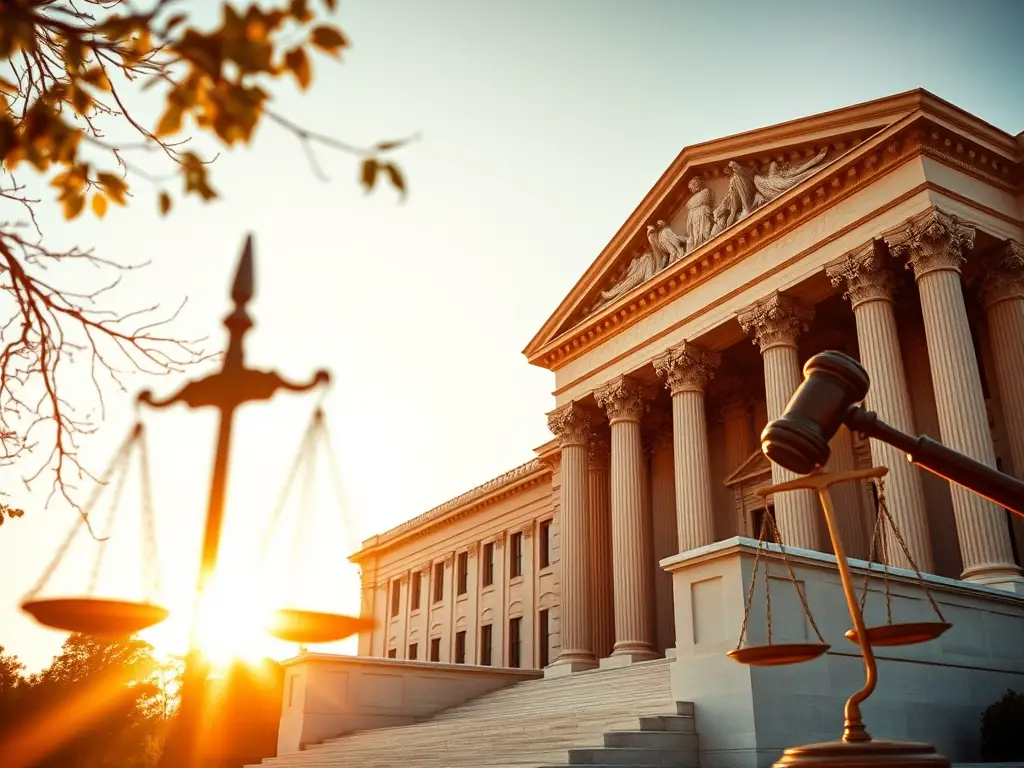The Michigan Supreme Court’s decisions raise concerns over judicial activism, liability expansion, and inconsistent expert standards.
Michigan Ranks 8th on Judicial Hellholes® List
LANSING, MI – For the second consecutive year, the Michigan Supreme Court has been listed on the American Tort Reform Association’s (ATRA) Judicial Hellholes® report, which highlights legal jurisdictions criticized for expanding civil liability and encouraging excessive litigation. In 2024, Michigan ranked eighth on the list due to rulings that ATRA claims weaken legal predictability and hinder economic growth.
The report cites the Court’s decisions on premises liability, expert evidence standards, and employment lawsuits as key factors in its inclusion. Critics argue these rulings favor litigation over stability, negatively impacting businesses and economic development across the state.
Premises Liability: Expanding Duty for Property Owners
” class=”wp-image-52180″ style=”width:800px”/>
One of the major points of criticism is the Court’s ruling in Kandil-Elsayed v. F&E Oil, Inc., which overturned long-standing precedent regarding premises liability. Historically, property owners could defend against slip-and-fall lawsuits if the hazard was deemed “open and obvious.” The Court’s decision now requires such cases to go to trial, where juries allocate fault, complicating dismissal even for hazards like snow and ice.
This approach was further expanded in July 2024, when the Court ruled that condo associations owe a duty of care to co-owners, not just visitors, effectively creating new liability exposure. Justice Brian Zahra, dissenting, criticized the ruling, saying, “Now is not the time to recognize a new category of premises-liability claims.”
Expert Evidence: Contradictory Standards Raise Concerns
The Court’s inconsistent approach to expert evidence standards is another area of contention. In Danhoff v. Fahim, the Court ruled that scientific literature is not always required to support expert testimony, allowing what ATRA calls “junk science” to enter courtrooms. This contradicted Michigan’s move in March 2024 to align Rule 702 of its Rules of Evidence with federal standards, which emphasize reliability and the judge’s role as gatekeeper.
Justice Zahra dissented, arguing that unsupported expert opinions undermine legal credibility: “An expert cannot rely solely on his or her own word to establish reliability.”
Employment Lawsuits: New Pathways for Litigation
The report highlights the Court’s ruling in Stegall v. Resource Technology Corp., where it created a public-policy cause of action for wrongful discharge. This decision allows terminated employees to bypass existing workplace safety retaliation procedures and file tort claims, opening the door to more litigation.
Justice Zahra again dissented, warning of an overreach: “The majority is breathing life into plaintiff’s preempted and otherwise meritless claims.”
Why This Matters for Michigan Businesses
ATRA argues that Michigan’s legal environment has become increasingly unfavorable for businesses. The state’s inclusion on the Judicial Hellholes® list raises concerns for job providers, as excessive litigation can deter economic growth, innovation, and new investments. The group claims activist decisions encourage “lawsuit abuse”, a sentiment echoed by businesses wary of expanded liability and unpredictable rulings.
Legislative Concerns and Future Impact
The report also places Michigan’s legislature under scrutiny, citing its recent repeal of protections for FDA-approved medications and a broader push for liability-expanding policies since the 2022 elections. Pending bills signal further challenges, with ATRA warning of increased opportunities for litigation if these measures pass.
A case to watch is Beaubien v. Trivedi, where Michigan’s Supreme Court will decide the constitutionality of caps on noneconomic damages in medical liability cases. A decision against the cap could destabilize Michigan’s civil justice system and increase healthcare costs, according to the report.
Michigan’s Path Forward
For the second year, Michigan’s ranking underscores the tension between judicial decisions and economic concerns. As ATRA’s Judicial Hellholes® report gains national attention, critics urge the Court to prioritize legal consistency and limit liability expansions that discourage businesses from investing in Michigan.
Find More Interesting Feature Stories From ThumbWind
- Michigan Features
Unveiling the people, places, and events that make the Great Lake State unique, we’ll explore hidden gems and must-do activities. - Weird Political News
A sarcastic and insightful take on official news released by government sources, PACs, and public officials. - Michigan News
News and events of Michigan’s Upper Thumb that are worth knowing in the region.
Your Turn – Like This, or Hate it – We Want To Hear From You
Please offer an insightful and thoughtful comment. Idiotic, profane, or threatening comments are removed. Consider sharing this story. Follow us to have other feature stories fill up your Newsbreak feed from ThumbWind Publications.



